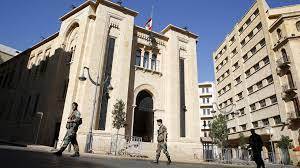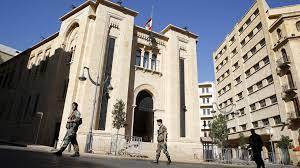The registration deadline for the upcoming parliamentary elections closed at midnight last Monday with 1,043 candidates; among them are 155 women, who will compete for 128 parliamentary seats. The districts with a Christian majority lead the list of candidates, while the Shiite influence areas recorded the lowest registration rates, indicating the fierce competition and numerous contenders for the Christian seats.
Interior and Municipalities Minister Bassam Mawlawi confirmed in a press conference: "We are ready to conduct the elections and meet the citizens' desire for freedom and democracy, to reach the ballot boxes to voice their opinions for a real country that takes into account all matters that should be present in a sound state."
Mawlawi announced that the number of candidates reached 1,043, an increase of 77 candidates compared to the 976 candidates recorded in the 2018 elections, stressing that "all attempts to postpone the elections or not hold them have failed," and he affirmed, "We are committed to the law and the constitution, and everyone is working without bias and with transparency."
The elections are scheduled for May 15, with expatriate elections preceding them. Mawlawi stated, "We promise you that during the period from today until May 15 and the expatriate elections, we will be ready for every detail to accomplish the entitlement successfully and democratically and smoothly in a way that whitens Lebanon's face internally and before the international community."
Mawlawi called upon citizens to "accompany us by monitoring the electoral process to ensure complete transparency and neutrality and to work with credibility and professionalism,” confirming that "there are no logistical obstacles, and we are working to secure everything". He also addressed expatriates, saying: "Go to the ballot boxes in the missions abroad freely and democratically without any fear and rest assured your voice will be heard."
The percentage of female candidates (155 women) constitutes 14.86% of the total candidates. Notably, there are four districts where no women have registered for seats, namely: the Minieh district, the Dinnieh district in the north, the Saida villages district, and the "Marjeyoun Hasbaya" district in the south. In the Beqaa districts (eastern Lebanon), there were 23 female candidates; 10 women in the three southern districts; 37 women in the three northern districts; 44 women in the two Beirut districts; and 41 women in the four Mount Lebanon districts.
The regions with Christian influence topped the list of registrations, recording 269 candidates in Mount Lebanon and 292 in the north, while the southern districts recorded the lowest registration rate with 105 candidates, an area that has a Shiite majority. The capital Beirut recorded 174 candidates, whereas the Beqaa recorded 203 candidates. These figures indicate that the intense competition will primarily take place for Christian seats among parties and reformist forces, while the competition will be less fierce in Shiite influence areas, although in the northern Beqaa district (Baalbek-Hermel), 43 Shiite candidates are competing for 4 seats, along with 21 Sunni candidates for 2 seats, 7 Maronite candidates for 1 seat, and 10 Roman Catholics for 1 seat as well.
The deadline for withdrawing candidacies closes on March 30, while candidates must organize electoral lists and submit them to the Ministry of Interior before March 31. Interior Minister Bassam Mawlawi stated: "We are working to secure electricity during the voting process until the closing of the ballot at the end of the day. There are 7,000 polling stations in Lebanon, and we will meet again after 10 days to review the requests."




